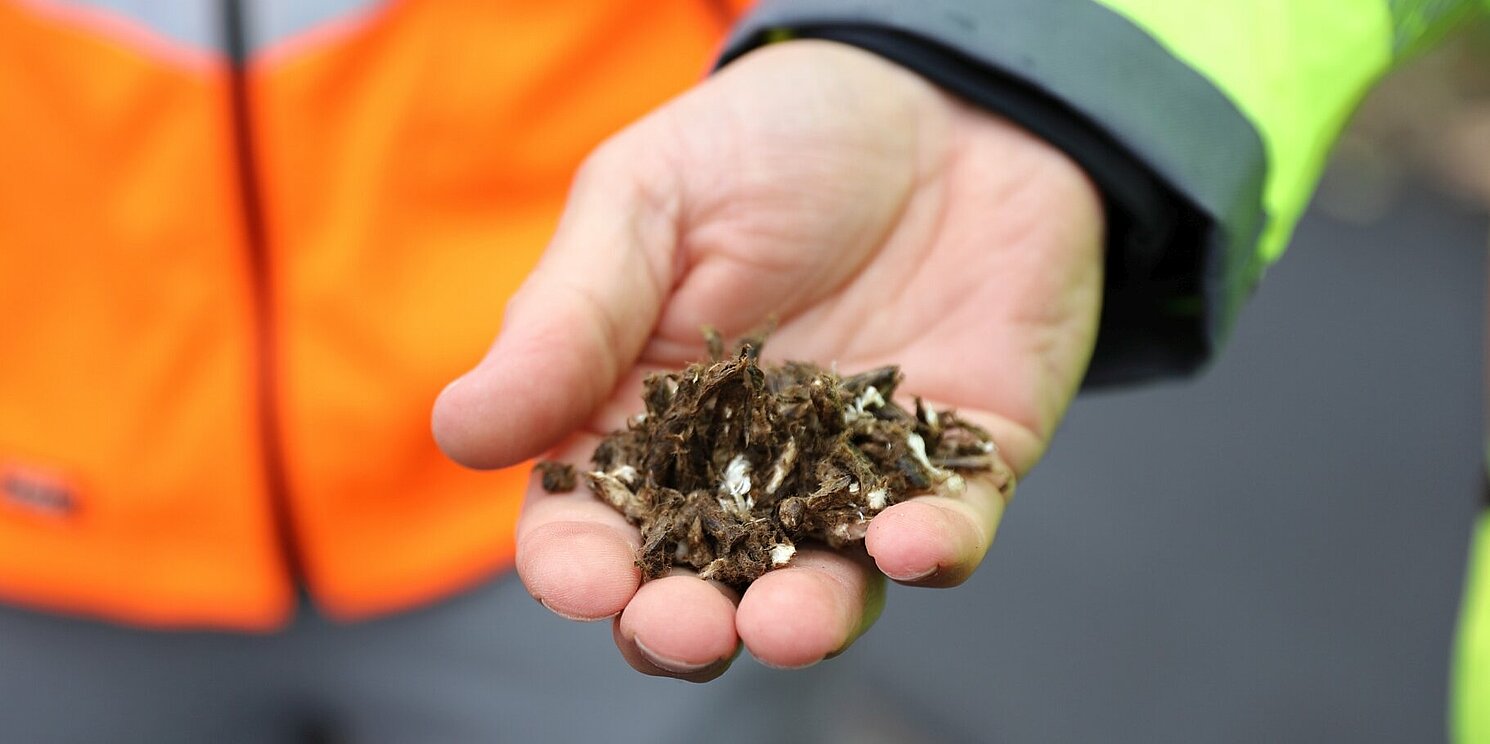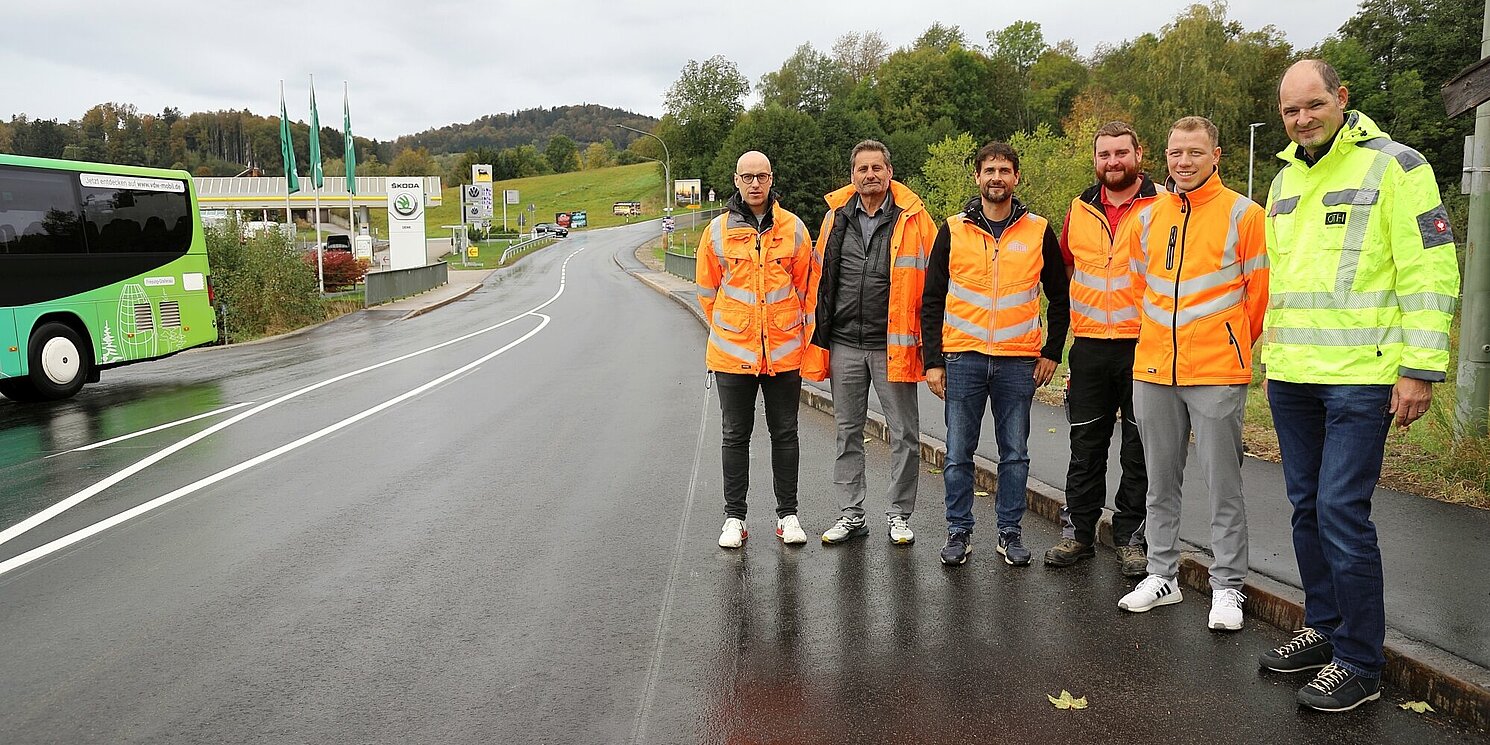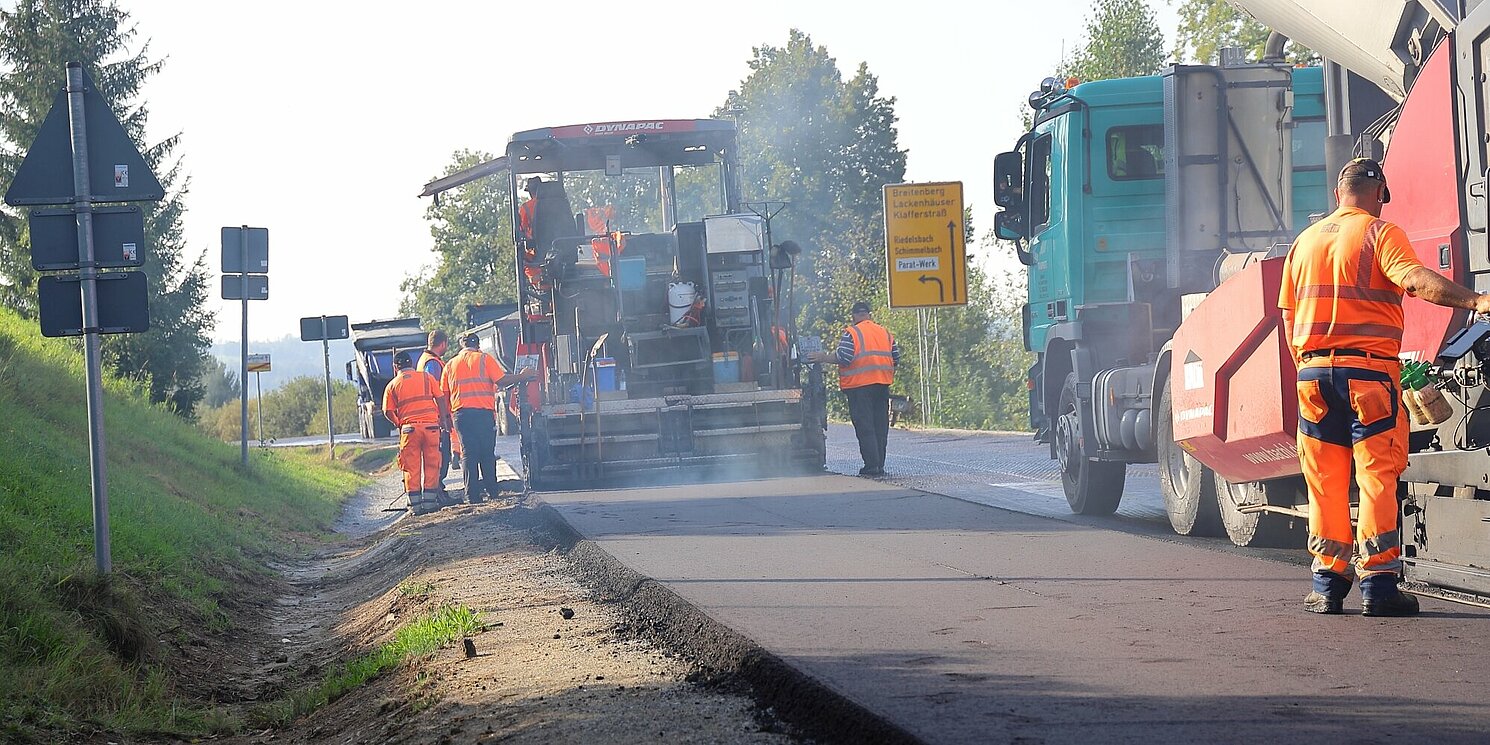The long periods of frost in the Bavarian Forest are causing problems for state and federal roads: Increased cracking is greatly shortening the service life of the carriageways. The Passau State Building Authority therefore asked OTH Regensburg to determine the causes of this and to find a solution to increase the service life of the roads.
In two final theses, OTH Regensburg students analysed the damage to two federal roads and one state road by taking samples and carrying out laboratory tests. One of the main causes of damage is therefore the inadequate cold behaviour of the materials used to date. To counteract this, the so-called acrylic fibre pellet has been developed over the past five years in the Laboratory for Road Construction and Asphalt Technology at OTH Regensburg in cooperation with external partners.
Fibres have proven themselves in laboratory tests
‘The high-quality fibres, which are normally used in the textile industry, show advantages in cold behaviour and durability when used in asphalt surface courses in laboratory tests,’ says the head of the Laboratory for Road Construction and Asphalt Technology, Prof. Andreas Appelt. The application was intensively tested both with very high-quality open-pored asphalts and with standard surface courses. In order to check whether the results from the laboratory are also confirmed in real-life use, the new additive was installed during the asphalting work on the St 2130 motorway near Neureichenau. Prof Andreas Appelt thanked Felix Arneth, the responsible head of department at the State Building Authority, and the representatives of the construction company Bachl for their cooperation during an on-site visit.
Research will analyse the data over the next few years
No problems were encountered during the production process or when laying the modified asphalt on the approximately 500 metre long test track, and some of the laboratory tests have already been confirmed. The next few years will show whether the track also exhibits increased durability. OTH Regensburg will closely monitor the development of the condition and regularly collect and analyse data. ‘If the use of acrylic fibre modification proves successful and a significantly longer service life can be achieved, this would be a significant contribution to the more effective maintenance of our road infrastructure, which is in urgent need of renovation,’ says Prof. Andreas Appelt.


